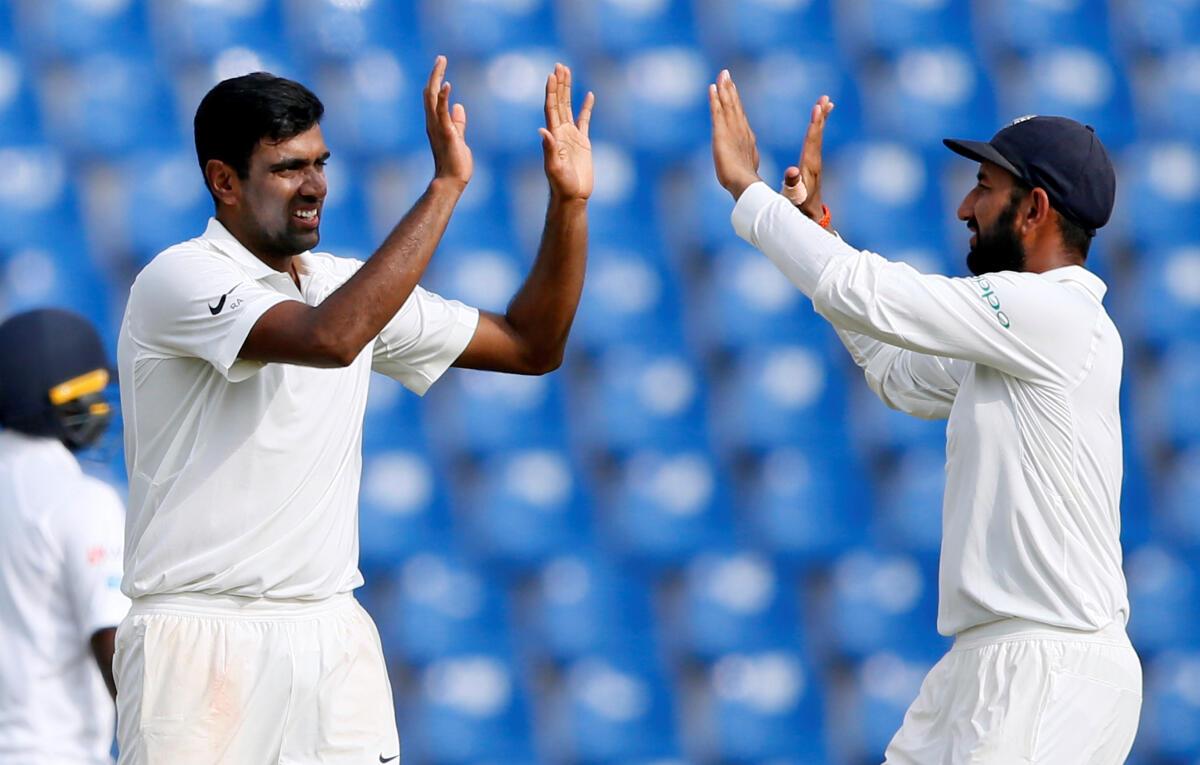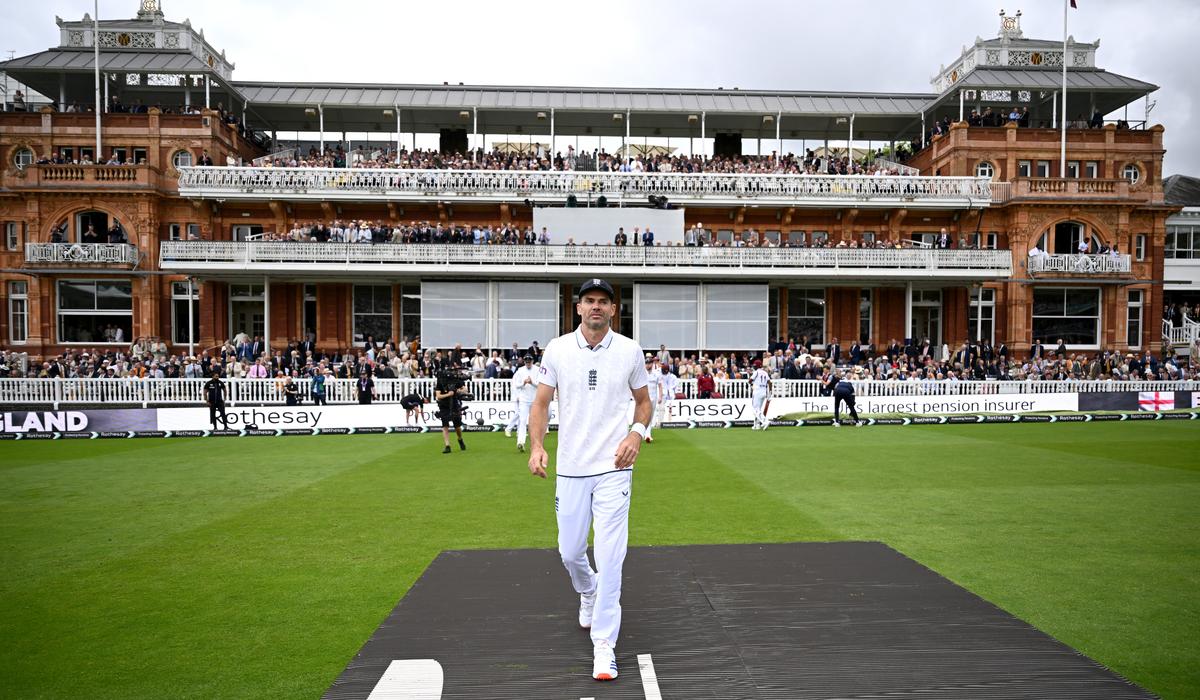No image defines the 2011 World Cup better than Mahendra Singh Dhoni’s six that won India cricket’s biggest trophy, 28 years after the miracle at Lord’s. The skipper, who memorably promoted himself up the order, swung Nuwan Kulasekara over long-on and deep into the stands to make India the first team in the tournament’s history to emerge as the champion at home.
But, there is another image from the Wankhede Stadium on that summer night which remains as significant and fresh still: a young, beardless — however unimaginable it might seem now — Virat Kohli carrying Sachin Tendulkar on his shoulders, and saying, unforgettably: “He has carried the burden of the nation for 21 years. It was time we carried him.”
ALSO READ | Fantasy time: players refuse to play, officials sit in the stands!
From the heart
That was as eloquent a statement as you could have imagined from a 22-year-old. That came from his heart, much like his cricket. And Tendulkar must have found it heartening.
Kohli wasn’t just carrying the legend. He was probably testing his own shoulders to see whether he could carry such a burden himself in the future.
He has, hasn’t he?

Sight for sore eyes: The presence of R. Ashwin and Cheteshwar Pujara in Test playing XIs comforted both teammates and supporters
| Photo Credit:
REUTERS
The bat that has to make a billion dreams come true had changed hands smoothly. Two years after finally winning his first World Cup, Tendulkar played his last Test on the same ground, his beloved Wankhede. He requested the BCCI to stage it in Mumbai, so that his ailing mother could watch him play; she would not have been able to travel to any other ground. In all his years as a cricketer, she had never watched him live in a stadium.
It was quite a farewell to the bat.
Few athletes have received such an emotional send-off. And yes, there was that poignant speech by the little maestro, too.
An unbelievable career had an unbelievable end. He made 74, and India defeated the West Indies. The picture became perfect. Like his straight drive.
ALSO READ | A handshake is just that, but one avoided is a lesson in cynicism
After Tendulkar, no player has had quite as much influence on Indian and international cricket as Kohli has. No one has made Test cricket more intense or revered. No one has chased targets better. The ODI numbers say as much, too.
What the numbers don’t reveal is the sheer passion he brings to cricket, especially in Tests. Next month at Ahmedabad, India will take on the West Indies; it is the country’s first Test at home since Kohli told his 270 million followers on Instagram that he was retiring from the classical format.
The announcement came in May, before India’s team for the England tour was named. That meant his last Test innings was against Australia at Sydney in January: he was caught at second slip by Steve Smith off the magnificent Scott Boland. Kohli perished yet again fishing outside the off-stump: the most painful sight in international cricket for a period except to those in the field and their supporters. Watching a champion performer struggle is always difficult.
ALSO READ | The X-factor in Men in Blue’s white-ball arsenal
Days before Kohli’s announcement, Rohit Sharma had also written on Instagram that he was retiring from Test cricket. Before that, during the disappointing tour of Australia, R. Ashwin had quit. Last month, Cheteshwar Pujara called time on all forms of cricket as well. His last Test was in 2023, though — the World Test Championship final at The Oval.
Within a space of a few months, four of India’s finest long-serving cricketers retired from Test cricket. And none of them got the opportunity to say a proper farewell. Like Tendulkar, Stuart Broad, James Anderson, Steve Waugh, Glenn McGrath, Shane Warne, Muthiah Muralidaran, and Don Bradman did. All those greats knew it was their final act on the stage they loved and lived for. As did the people that loved them.
Climaxes and anticlimaxes
And some of those cricketers could end their career in perfect fashion. Broad took the last Australian wicket to give England a series-levelling draw at The Oval in 2023. The following year, his partner in crime with the new ball for some 15 years, James Anderson, also played his part in England’s win in his final Test against the West Indies at Lord’s.
The greatest batter of all time, however, had a most anticlimactic end to his career. Don Bradman was bowled for a duck by leg-spinner Eric Hollies in the 1948 Ashes Test at The Oval. All he needed was a shot — for four — to take his Test average to 100.
ALSO READ | The great Indian spin trick
Bradman was just shy of his 40th birthday when he hung up his boots. Anderson was almost 42, and for a pace bowler to last that long is remarkable. Yet, he wasn’t exactly planning to quit.
“It is one of those things that was out of my hands,” he said in an interview with TheIndependent a few months ago. “They made the decision to move away from having me in the team. That was pretty gutting at the time. I had been preparing before my last Test match for the next six, 12, 18 months of Test cricket; I wasn’t anywhere near retirement in my head.”

Bittersweet: James Anderson was granted a memorable send-off, but it was forced on him. ‘I wasn’t anywhere near retirement in my head,’ he said in an interview.
| Photo Credit:
Getty Images
That is the thing with team sports. Timing your farewell is not in your hands. In individual sport, you are the master of your own destiny. But in team sports, even in cricket for all its individual elements, things that Anderson spoke of come into play. For instance, your belief that you are still good enough to be in the team has to be shared by the selectors, the coach and the captain (if you are not one).
Sujith Somasunder, the former India opener who is now pursuing a PhD in sports psychology, says it can be very difficult for a top athlete to make that decision to retire.
“Players like Kohli thrive on winning a game for the country, and they get a kick out of it; it is not money or fame that drives them,” he told The Hindu. “But someone like him would not want people to remember him for his failures, of which has had a few of late. He would rather like to be remembered for the great match-winner that he has been for India. He has a big number of international hundreds, but what is really special about him is that he has won more games for India than anybody else perhaps.”
ALSO READ | Field and fraternity: On the India-Pakistan Asia Cup match
Understandable reaction
Sujith, who heads Education at the BCCI’s Centre of Excellence in Bengaluru, feels it is understandable that people are disappointed that men like Kohli, Rohit and Ashwin didn’t get one final Test. “Ours is a hierarchical society where there is a lot of respect for seniority and the services someone has provided over a long period of time,” he says. “In sport, someone who is in the evening of their career should be able to view their role objectively, to examine if their presence is helping the team. That of course is not easy.”
He believes someone like Kohli deserves to be honoured in the manner Tendulkar was. “Maybe Shubman Gill could carry him on his shoulders,” he says. “Kohli deserves a gesture like that.”

